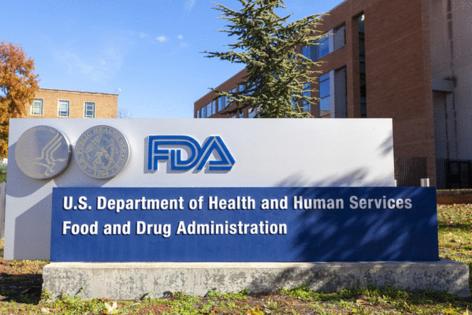Kennedy's mental health drug skepticism lands at FDA panel
Published in News & Features
WASHINGTON — The Food and Drug Administration, making good on a Trump administration promise to examine usage of antidepressants, on Monday convened a panel largely of antidepressant skeptics to discuss the health impacts of taking such medicine while pregnant, though several panelists have no particular expertise on pregnancy research.
The panelists during the two-hour event essentially echoed the statements of Health and Human Services Secretary Robert F. Kennedy Jr., who has cast doubt on the effectiveness of selective serotonin reuptake inhibitors and other medicines. They presented unproven theories about potential linkages between mothers taking antidepressants and babies developing autism and fetal alcohol syndrome, among other disorders.
Democrats in Congress have called out Kennedy for making claims without scientific research to back them, describing his anti-SSRI views as dangerous and detrimental to Americans receiving routine and necessary health care. They have called for evidence-backed decisions from the nation’s health agencies.
What research has shown is that depression and anxiety are common in pregnancy, impacting between 10% and 22% of pregnant women. Roughly 6% of pregnant women will take an SSRI at some point during pregnancy. Children of mothers with depression are at high risk of developmental, social and emotional delays, which is why physicians screen pregnant and postpartum women for symptoms of depression at each appointment, health experts say.
FDA Director Marty Makary said Monday that while antidepressants are an effective tool to help people with mental health disorders, society needs to look at the root causes of depression. He said serotonin could play a crucial role in the development of a fetus, and medicines that interfere with it may cause birth defects in babies.
Makary and the panelists worried that doctors are overprescribing SSRIs to pregnant women.
“The more antidepressants we prescribe, the more depression there is. The more insulin we prescribe, the more diabetes there is,” Makary said.
Panelists included Josef Witt-Doerring, a YouTuber with 139,000 subscribers who conducts “taper clinics” that cost upward of $60,000 to help people wean off SSRIs; Roger McFillin, who has appeared on right-wing podcasts saying antidepressants don’t help treat depression; David Healy, a physician in North Wales who posited that SSRIs cause alcohol use disorder and fetal alcohol syndrome; and Joanna Moncrieff, a British psychiatrist who repeatedly said that antidepressants do not treat depression.
Panelist Adam Urato, the chief of maternal fetal medicine at MetroWest Medical Center in Framingham, Massachusetts, argued that when a woman takes an SSRI, it impacts the fetal brain and can cause autism or depression.
“That’s what chemicals do. Chemicals have consequences,” Urato said. He did not provide evidence for the claim.
Claims draw criticism
President Donald Trump in February signed an executive order establishing the Make America Healthy Again Commission, saying it would assess the “threat posed by the prescription of selective serotonin reuptake inhibitors, antipsychotics, mood stabilizers, stimulants, and weight-loss drugs.”
Kennedy has linked SSRIs to school shootings and said they are more addictive than heroin. Research doesn’t support either claim.
Democrats on Capitol Hill have called Kennedy’s anti-SSRI views dangerous and cautioned that propagating them could deter Americans from receiving routine and necessary health care.
During Kennedy’s confirmation hearing in January, Sen. Tina Smith, D-Minn., asked Kennedy if he stood by his previous statements that antidepressants could cause school shootings. Smith said she struggled with depression as a young mother and antidepressants were very helpful for her.
“There’s no science on that,” Kennedy told Smith, adding that he knows people who have had more problems getting off of SSRIs than heroin.
“Your job as secretary is to expand access to care,” Smith replied. “I’m very concerned this is another example of your record of sharing false information that hurts people.”
Prominent medical organizations, such as the American College of Obstetrics and Gynecology, do not deter pregnant women from taking antidepressants during pregnancy and emphasize the importance of weighing risks and benefits.
Johns Hopkins Medicine in Baltimore has warned that untreated mental illness poses risks to a developing fetus, and that a depressed mother is less likely to provide good prenatal care and more likely to engage in dangerous behaviors.
Studies have shown a slight association between use of the drug paroxetine in the first trimester and heart defects. Pregnant women are also to avoid using valproic acid and tranquilizers, like diazepam, in high doses during pregnancy. But other drugs like Zoloft and Lexapro are generally considered safe.
One FDA panelist, Kay Roussos-Ross, director of the perinatal mood disorder program at the University of Florida College of Medicine, countered the unproven theories and emphasized a shared decision-making model that takes both the mother’s and fetus’ needs into account.
“We definitely know the risks of untreated anxiety and depression in pregnancy,” Roussos-Ross said. “Psychotherapy and SSRIs are tools we have to make a positive impact in the lives of mothers and infants.”
“Treating mental illness in pregnancy is not a luxury, it’s a necessity,” she added.
©2025 CQ-Roll Call, Inc., All Rights Reserved. Visit cqrollcall.com. Distributed by Tribune Content Agency, LLC.







Comments